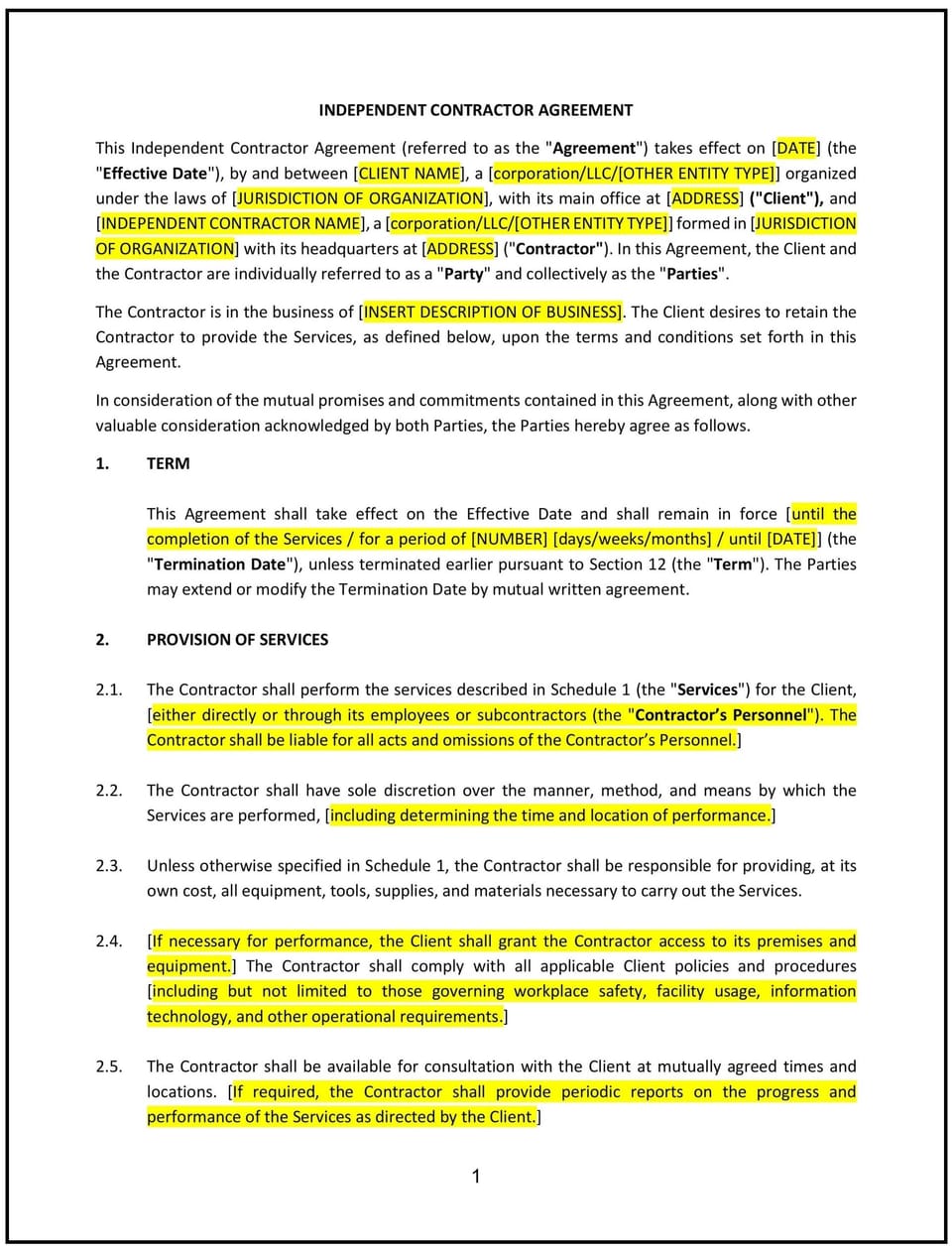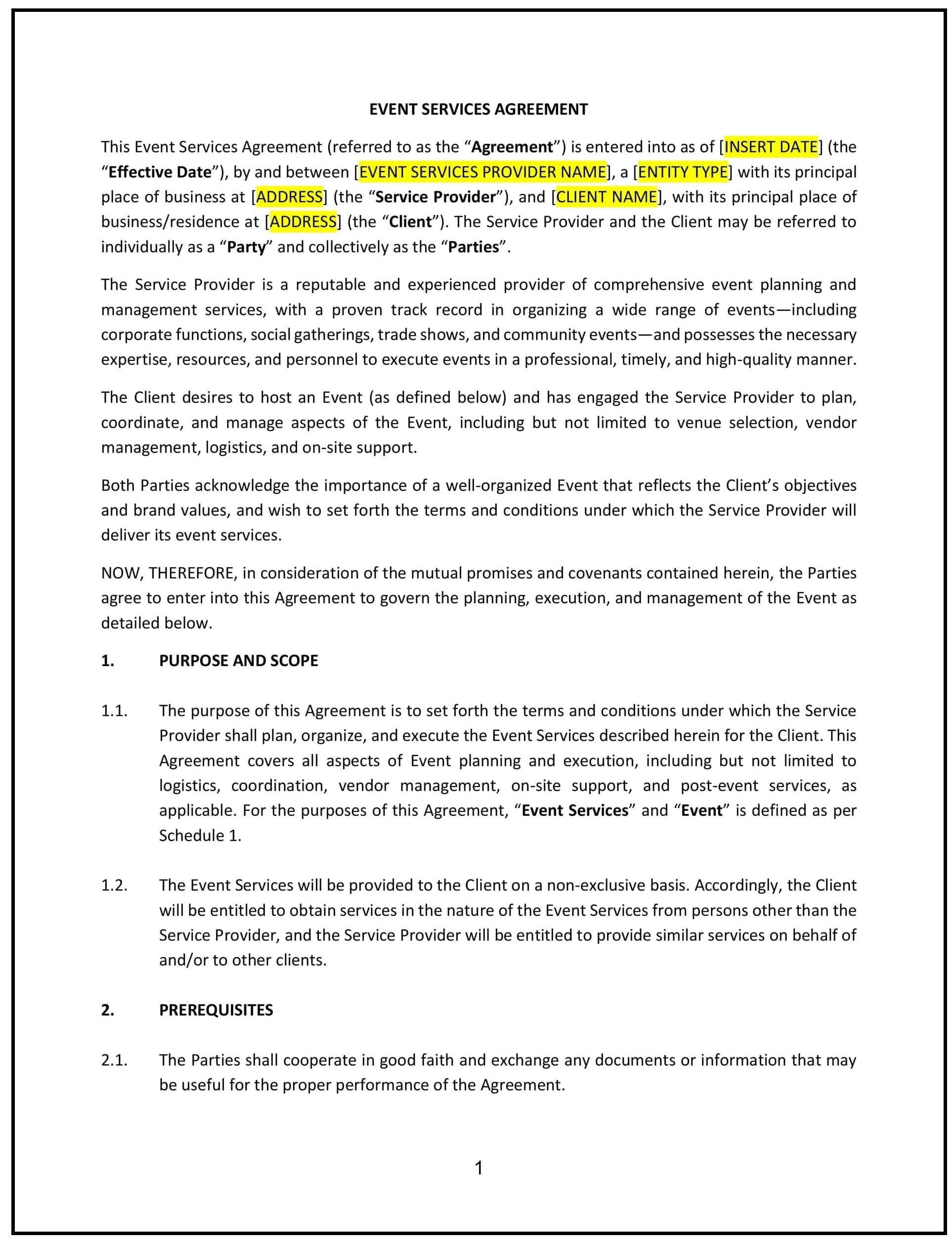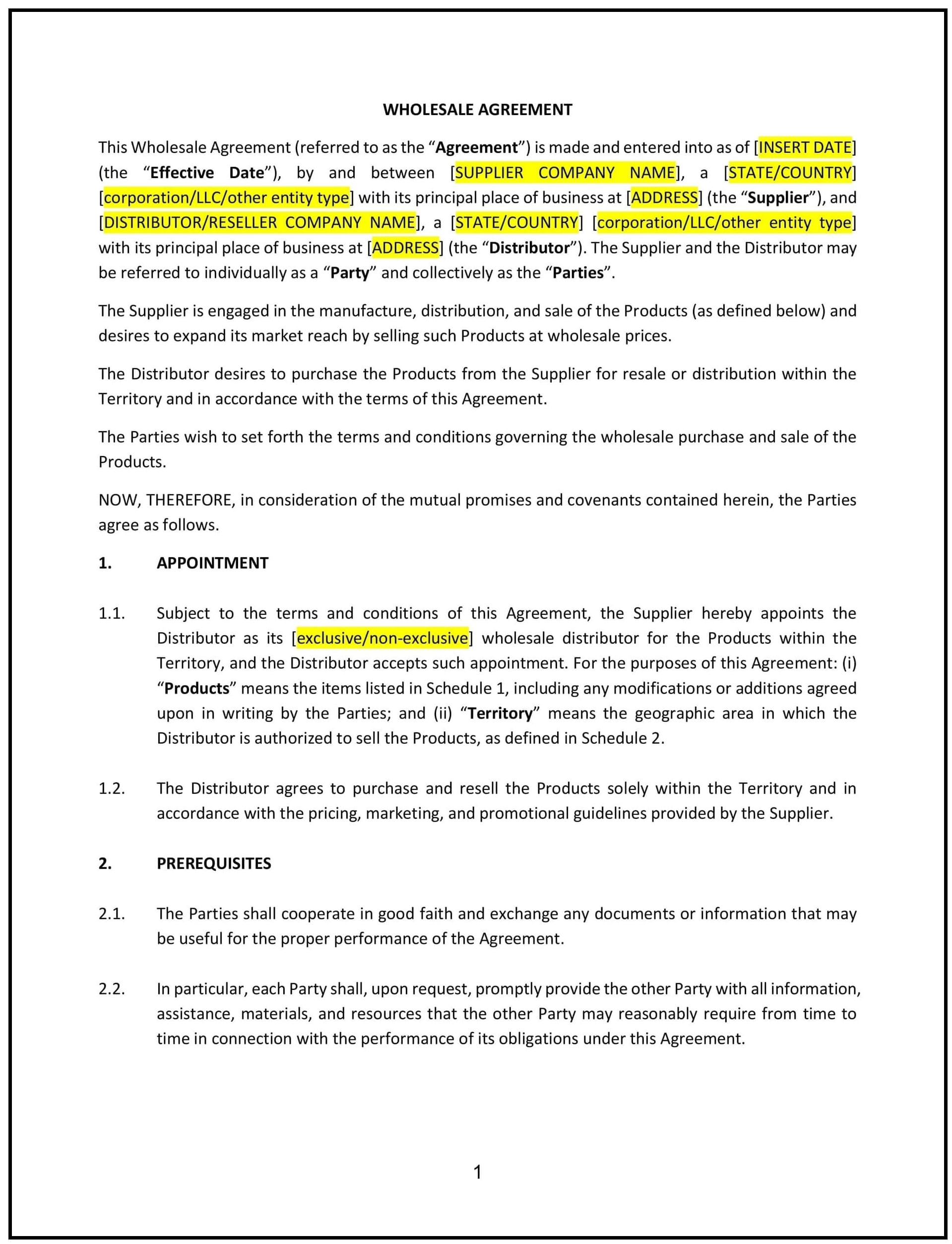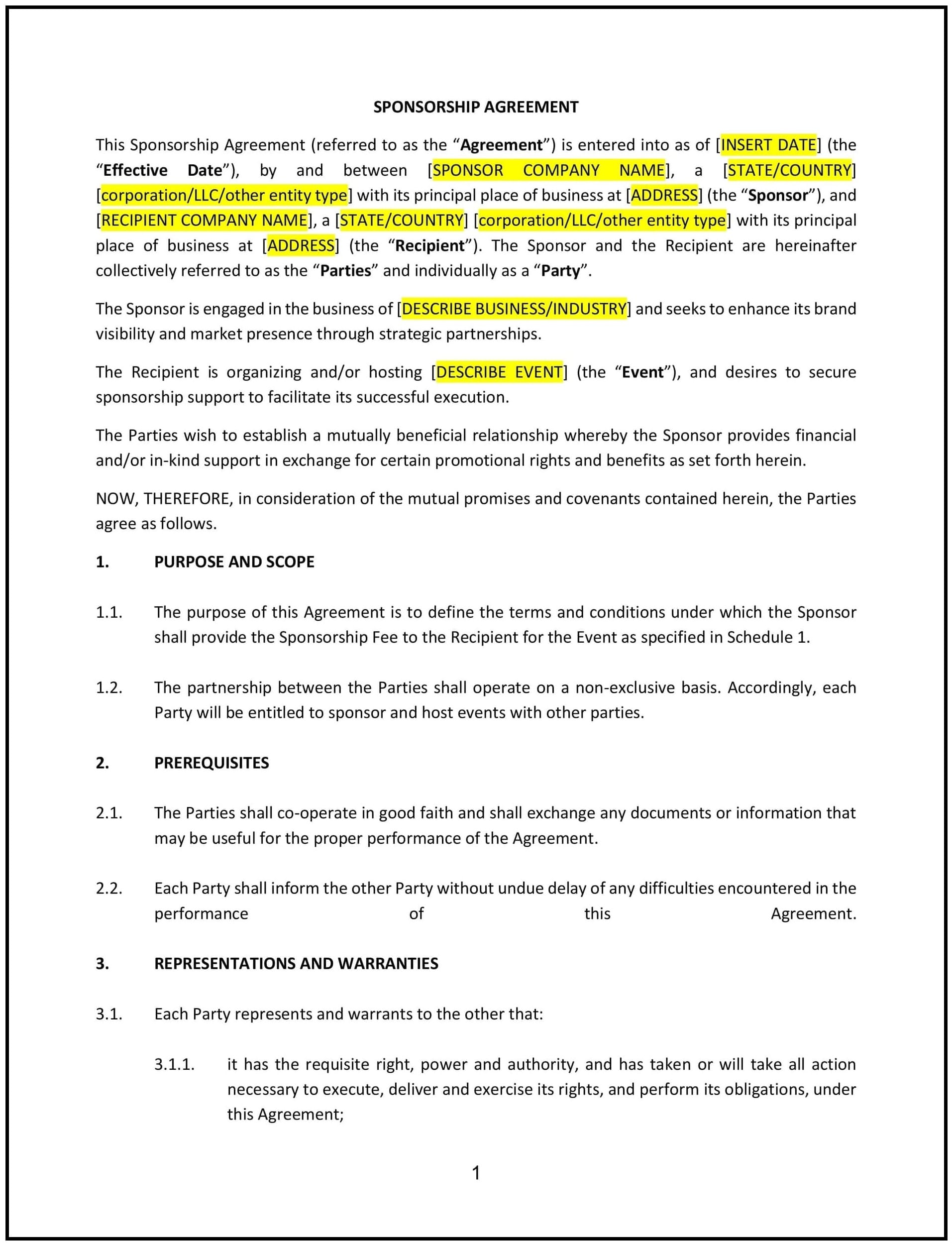Independent Contractor Agreement (Arizona): Free template

Independent Contractor Agreement (Arizona)
An Independent Contractor Agreement in Arizona is a legally binding contract that establishes the terms under which an independent contractor provides services to a business. Unlike employees, independent contractors operate as self-employed professionals responsible for their own taxes, insurance, and business expenses. This agreement ensures clear expectations between businesses and contractors while protecting both parties from misclassification risks under Arizona labor laws.
Arizona businesses use independent contractor agreements to engage specialized talent without the obligations of full-time employment. The agreement helps define work scope, payment terms, confidentiality obligations, intellectual property (IP) ownership, and liability limitations. Arizona follows IRS guidelines and Arizona Department of Economic Security (DES) regulations to determine whether a worker qualifies as an independent contractor. Businesses must ensure proper classification to avoid penalties, back taxes, and potential legal disputes.
Industries such as construction, healthcare, technology, consulting, and professional services in Arizona frequently rely on independent contractors for project-based work. A well-structured agreement ensures that contractors maintain their independent status while protecting business interests.
Tips for drafting and maintaining an Independent Contractor Agreement in Arizona
- Clearly define the scope of work, including deliverables, timelines, and project objectives to prevent disputes over expectations.
- Specify payment terms, including invoicing procedures, rates, due dates, and penalties for late payments. Arizona law allows flexible compensation structures for independent contractors.
- Include a contractor status clause that affirms the independent nature of the contractor’s work, ensuring they are not classified as an employee under Arizona labor laws.
- Protect confidential business information by incorporating non-disclosure clauses. Arizona law supports enforceable NDAs when they are reasonable in scope and duration.
- Clarify intellectual property ownership, specifying whether any work created during the contract belongs to the contractor or the hiring business. Arizona businesses should include work-for-hire clauses when necessary.
- Address dispute resolution, specifying whether conflicts will be handled through Arizona courts, arbitration, or mediation. Many Arizona businesses opt for arbitration to streamline dispute resolution.
Frequently asked questions (FAQs)
Q: What should Arizona businesses include in an Independent Contractor Agreement?
A: Businesses should outline the scope of work, payment terms, confidentiality clauses, liability limitations, and contractor status to ensure compliance and prevent disputes.
Q: How does an Independent Contractor Agreement benefit businesses in Arizona?
A: It provides a legal framework that protects businesses from misclassification risks while ensuring contractors meet project expectations.
Q: Can a business in Arizona control how an independent contractor works?
A: No, businesses can set project deadlines and quality standards, but independent contractors must retain control over how they perform their work to maintain their classification.
Q: How does Arizona determine if a worker is an independent contractor?
A: Arizona follows IRS and DES guidelines, considering factors such as work independence, control over work methods, and financial investment in their business.
Q: Are non-compete clauses enforceable in Arizona independent contractor agreements?
A: Arizona limits the enforceability of non-compete agreements, requiring them to be reasonable in scope, duration, and geographic reach.
Q: How can businesses avoid misclassifying independent contractors in Arizona?
A: Businesses should avoid controlling work schedules, providing employee benefits, or requiring exclusive work arrangements, as these factors can indicate an employer-employee relationship under Arizona law.
Q: What happens if an independent contractor claims they were misclassified as an employee in Arizona?
A: The Arizona Department of Economic Security (DES) and IRS can investigate claims, potentially leading to fines, back taxes, and penalties for businesses found to have misclassified workers.
Q: Are verbal Independent Contractor Agreements enforceable in Arizona?
A: While verbal agreements may be legally binding in some cases, a written contract provides stronger legal protection and clearly defines expectations for both parties.
This article contains general legal information and does not contain legal advice. Cobrief is not a law firm or a substitute for an attorney or law firm. The law is complex and changes often. For legal advice, please ask a lawyer.


